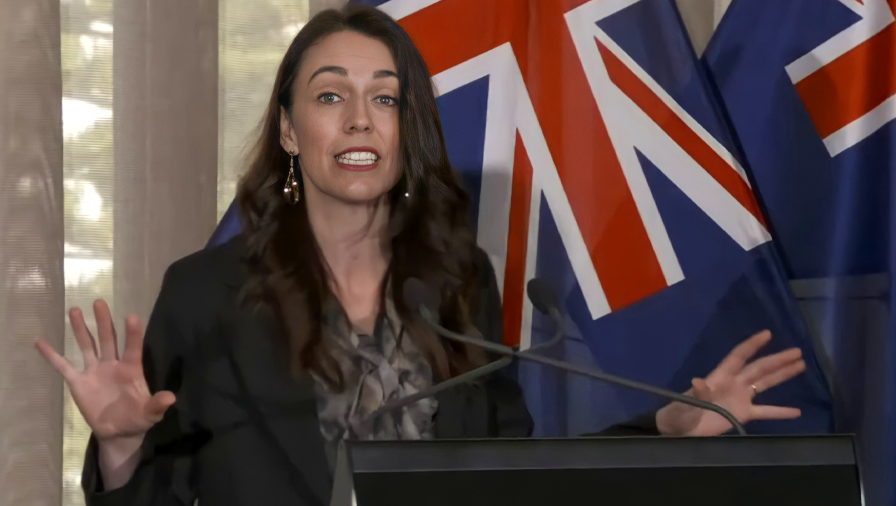Grant Robertson’s budget balancing act and fears of a brain drain
ANALYSIS: Will the government’s new immigration policy avert a brain drain?
ANALYSIS: Will the government’s new immigration policy avert a brain drain?
It’s budget week and Finance Minister Grant Robertson is under pressure to do more to respond to the cost-of-living crisis.
But Robertson has already made clear he will not budge on his commitment to spend the lion’s share of the $6 billion of new spending in the budget on health reforms and initiatives to reduce the country’s greenhouse gas emissions.
We will know more about the latter later today when the Government releases its emissions reduction plan, setting out how it intends to meet its emissions budgets over the next decade or so. When it comes to reducing emissions, the Government’s big challenge is to do it in a way that does not hurt low-income households the most.
For instance, there is talk about introducing congestion charges in Auckland and Wellington. But that could be detrimental to low-income households, who can ill-afford extra charges and have little discretion about how they get to work. Any extra costs that come from the plan will also feed into the political debate on inflation.
Robertson made clear in his pre-budget speech last week that officials were advising him the current inflation rate was a spike and not necessarily a long-term trend. As well, many other countries are experiencing similar price increases, driven largely by pandemic-induced supply chain problems and Russia’s invasion of Ukraine, which is pushing up the price of oil and other products.
Spike or not, though, households are doing it tough, particularly as the Reserve Bank is raising interest rates to bring inflation under control. There is no sign price pressures will ease anytime soon and the political dilemma the government faces is that households will likely still be feeling the financial squeeze in the 2023 election year. Across the Tasman, the Labour Opposition is using the ‘cost-of-living’ crisis to attack the Coalition government during the Australian election campaign, with voters due to pass judgement this Saturday.
Robertson argued the Government has already done a lot to help struggling households, including through a range of income support measures which came into effect on April 1, plus the decisions it made to reduce fuel taxes and halve the cost of public transport. Those temporary measures are due to be removed at the end of June. If so, petrol prices will shoot up further and public transport costs will double, still at a time when households are facing high inflation.

Cheaper public transport
What is the chance this week the Government announces either making some of those changes permanent – such as cheaper public transport – or at least extends them for another couple of months?
When the budget does come out this Thursday, Opposition MPs and reporters will pore over the numbers, but particularly over the $6b of new spending. Overall though, the government intends spending $120b in the 2022-23 financial year and all of it deserves scrutiny.
Both National and Act have already criticised what they call wasteful spending and in its alternative budget Act proposed wide-ranging cuts, including eliminating a number of government departments and agencies it claimed do nothing. National will not go that far, but its finance spokesperson Nicola Willis said Robertson will have justify all his spending and she questioned why he needs $6b of new spending.
Meanwhile, the latest immigration numbers recorded a net loss of 7,300 people in the year to the end of March. Economists warn New Zealand could be facing a brain drain. This country’s tough border restrictions are seen as part of the problem because they have made it so difficult for people to come here, while it has been easier for people to leave for other countries.
But last week Prime Minister Jacinda Ardern announced the borders would fully open from the end of July, earlier than scheduled. The Government is also changing settings for immigrants to make it easier for skilled people to come here to work and live. A green list has been set up giving immediate residency to a range of occupations, from scientists, engineers, trade and tech sector workers and doctors.
The policy though has been labelled sexist because most occupations on the list are male dominated and nurses are excluded from the fast-track residency process. The new rules still make it relatively easy for nurses to come here, but they have to wait two years before they get residency. Given the shortage of nurses, both in hospitals and aged care facilities, it seems odd the Government did not prioritise them.
Who talked to who?
Immigration Minister Kris Faafoi says he did consult the sector about the decision but, in public at least, there appears to be plenty of confusion about who said what to whom.
Ardern says the new rules will address immediate skills shortages in New Zealand and speed up the economic recovery from Covid-19.

Presumably if the new settings work, the net migration loss experienced in recent months will turn into a net gain. But the Government is also adamant it will not mark a return to the days of massive migration inflows.
“New Zealand cannot return to pre-pandemic trends that saw us overly reliant on growing numbers of lower-skilled workers and resulted in the increased exploitation of migrants,” Faafoi said.
Businesses have generally welcomed the announcement, but unions and the Green Party said the changes will entrench a two-tier system. There remain concerns, too, that there still won’t be enough workers to pick fruit or to work in tourism and hospitality jobs.
As young New Zealanders take advantage of open borders to catch up on delayed overseas travel, there are also fears the skills shortage – in the short-term at least – could get worse before it gets better.
Whatever changes the government makes to migration settings, the big obstacle New Zealand faces attracting and retaining workers is money. We simply do not pay enough to compete with other countries for the skills we need.
This Thursday’s budget is unlikely to change that.
Brent Edwards is NBR’s political editor.